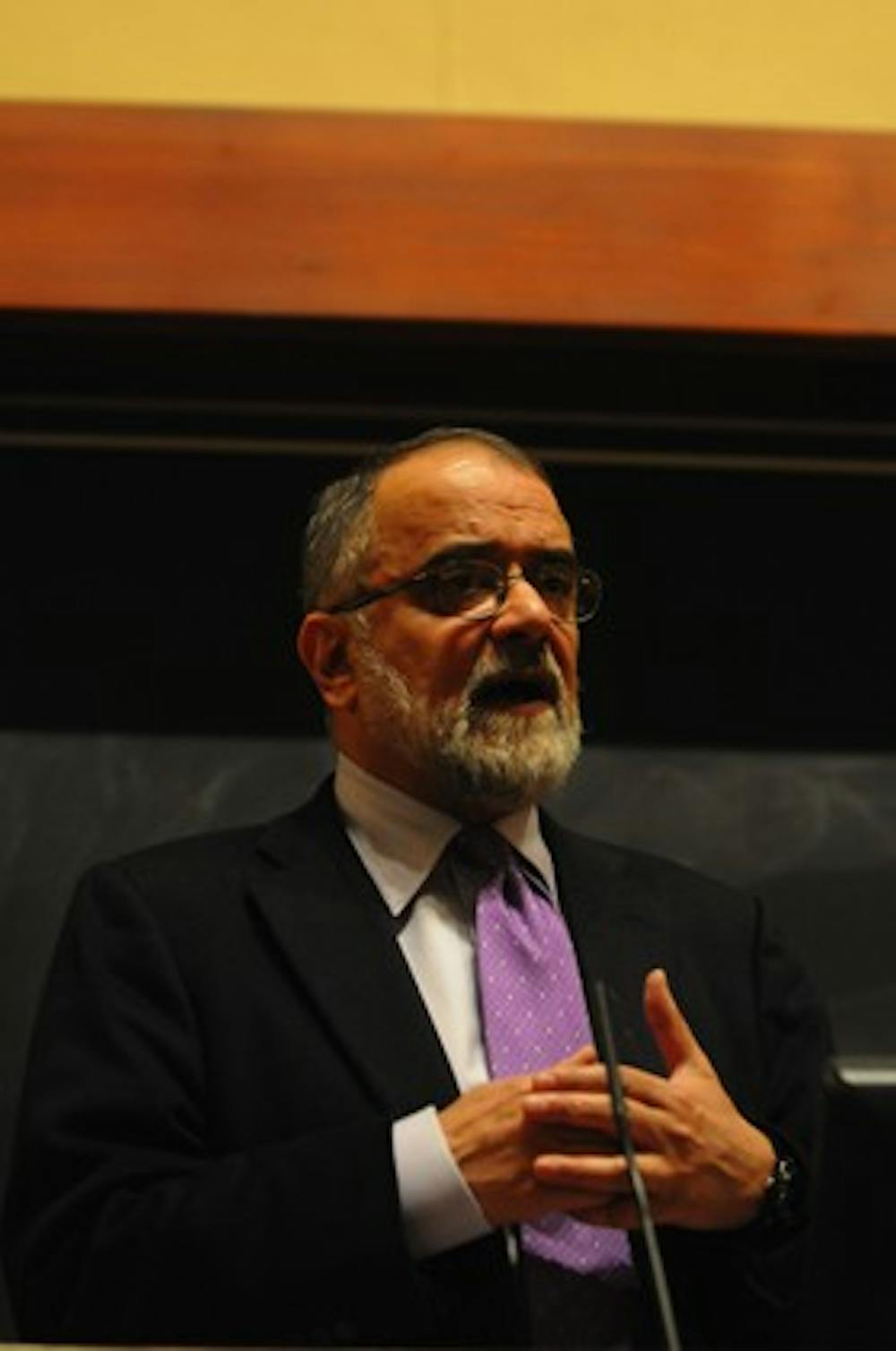
Tuesday night, a journalist with first-hand knowledge of the current war in Afghanistan brought vivid description and analysis of the conflict to Penn.
Ahmed Rashid, best-selling author of Descent into Chaos: The United States and the Failure of Nation Building, gave the 2009-2010 Rena and Angelius Anspach Lecture, presented by the Christopher H. Browne Center for International Politics.
Rashid, an expert on Pakistan, Afghanistan and Central and South Asia, discussed the current situation in the region and his views for solving the seemingly unsolvable conflict.
He began by noting that the region faces a quickly deteriorating military, economic and humanitarian situation.
“The Taliban today are no longer an Afghan phenomenon,” Rashid said, characterizing the conflict as “a big regional issue.”
Attempting to summarize the problem in a single word, Rashid pointed to the previous administration. “Iraq,” he said, blaming the Bush administration for neglecting the South Asian conflict and leading to the current, degenerate state.
Rashid noted that, since the U.S. military has recognized that this conflict cannot be won militarily, a political solution is needed to achieve long-term stability.
He stressed that the main problem is the lack of a national economy, and explained that economic development would have been much easier in 2002 before the insurgency.
“The crisis in the region is actually in the capitals of Europe and America,” he said, alluding to the role that the U.S. and NATO play in rebuilding the war-torn region.
He said President Barack Obama inherited a critical situation in the nuclear-armed region. The administration’s regional strategy has set a goal to begin withdrawing forces in July 2011.
Rashid sees this rigid time frame as hampering stabilization efforts, since it gives the Taliban the notion that they only need to resist a little longer. It also generates panic of an American withdrawal in the already weak government in Kabul, he said.
Rashid also said dealing with the Taliban sanctuary in Pakistan — long denied by Islamabad but widely acknowledged by others including the Obama administration — is crucial.
“There should be a proper, negotiated end to this war,” said Rashid, expressing fears that domestic issues will pressure the Obama administration into a rush departure that leaves the region in dire conditions.
After the lecture, Political Science student in the College of Liberal and Professional Studies Waqar Rehman remarked that “even if the Americans were able to win militarily, they would produce no contribution to the ideological conflict going on.”
The Daily Pennsylvanian is an independent, student-run newspaper. Please consider making a donation to support the coverage that shapes the University. Your generosity ensures a future of strong journalism at Penn.
DonatePlease note All comments are eligible for publication in The Daily Pennsylvanian.







